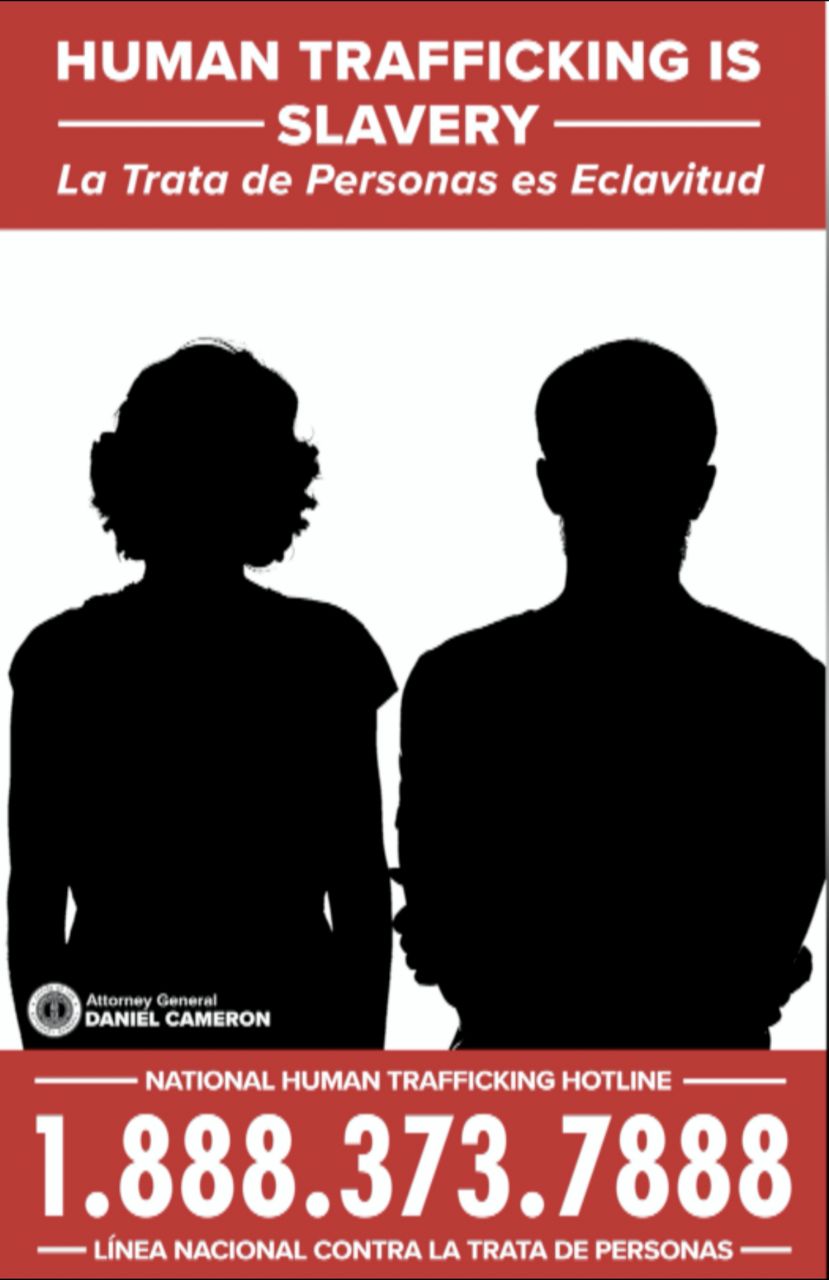LOUISVILLE, Ky. — House Bill 2 signed into law by Governor Andy Beshear (D) in April 2020 went into effect Wednesday, July 15.
One part of the law created a new section to require airports, passenger train stations, truck stops, and bus stations to post a human trafficking flyer with the National Human Trafficking Hotline number in publicly accessible bathrooms.

“They can be transported in any way that you can think possible,” said Summer Dickerson, a Louisville-based survivor turned advocate of human sex trafficking.
All of the locations are busy places with public restrooms, which is a place a victim may go in alone, not with their perpetrator. The hope is for victims to call the number.
“Because even still in July 2020, we still have victims that don’t know there is a human trafficking number that they can actually call for help,” Dickerson explained.
However, Dickerson said this isn’t just the responsibility of the victim because like when she was a victim, sometimes victims don’t know they are being trafficked. Therefore, the posters are also meant to catch the attention of everyday travelers at these locations for them to also be on alert. Dickerson said a sex trafficking victim can look like anybody: male, female, any age, any race, and wearing any type of clothing.
“They can look like they’re, you know, in some serious trouble, very malnutrition or they can look very healthy and look like they don’t have a thing going on with them,” Dickerson told Spectrum News 1.
She said it’s crucial to listen to your gut if something doesn’t look right.
If it’s safe, Dickerson recommends asking that person a few questions, such as, “What day is it?” Another question is, “What city and state are you in,” since victims can be moved around a lot. Dickerson advises a person to call the hotline if they don’t feel safe or comfortable to talk with the person.
“What’s the worst thing that could happen? It ends up not being a victim? Awesome! But what if it was a victim and you, and you didn’t call,” Dickerson warned.
According to the National Human Trafficking Hotline, in 2019, it received 115 calls from victims and subscribers within Kentucky.
According to a July 2018 report released by Polaris, a data-driven organization aimed at ending sex and labor trafficking in North America, the use of buses and trains may be a preferred method of transportation for traffickers because of the lower cost, limited interaction with officials, and the ticket buying process is more anonymous when compared to air travel.
Dickerson knows posting these flyers in public restrooms in high traffic areas is a step in the right direction, but she also wants to see the signs posted in every public place, from restaurants to gas stations.
“The more people that get educated and the more people that listen to survivors of human trafficking, the more that we can get ahead of the situation,” Dickerson said.
She also wants everyone to save the number on their phone because human trafficking happens everywhere.
The Human Trafficking Awareness Hotline is 1-888-373-7888. Anyone can also text “help” or “info” to 233733.
Help is offered in English and Spanish, plus 200 more languages.


